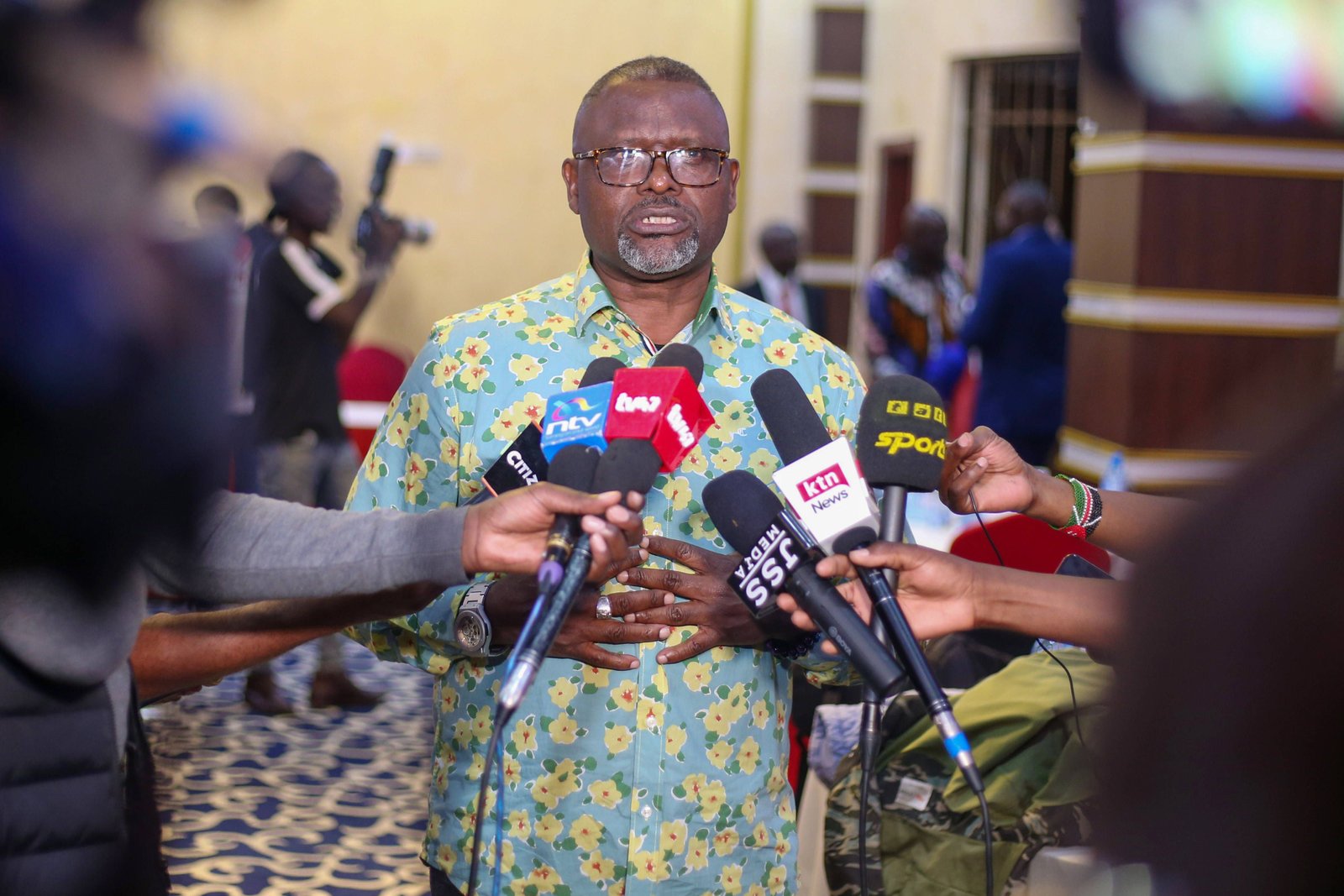Former Harambee Stars head coach Jacob ‘Ghost’ Mulee has called for a structural overhaul in Kenyan football, emphasising the importance of early player development as the cornerstone for long-term success.
Mulee’s remarks come in the wake of Kenya’s failure to qualify for the 2025 Africa Cup of Nations (AFCON), following a 1-1 draw against Zimbabwe in Polokwane.
The Harambee Stars ended their Group J campaign with just five points, finishing third behind Zimbabwe and group leaders Namibia. Reflecting on this setback, Mulee pinpointed the lack of foundational football education as a critical shortcoming for Kenyan players.
Harambee Stars were held to a 1-1 draw by Zimbabwe on Friday, which knocked them out of the 2025 AFCON qualifiers.
Drawing parallels between academic and football development, Mulee stressed that Kenyan players often start their football education too late, leaving them unprepared for the tactical and technical demands of high-level competitions.
“I cannot blame Ronney. That is where our football is,” Mulee said, referring to an incident during the match against Zimbabwe where right winger Ronney Onyango missed a glorious opportunity to put the side into the lead before Zimbabwe scored the first goal from a counter-attack moments later.
“He did the right thing, went past two players but did the wrong thing. He shot the ball aimlessly. Less than a minute later, Zimbabwe scored. The guy that scored just looked at where (Harambee Stars goalkeeper) Bryne (Omondi) was and shot the ball into the back of the net—not with power, but precision.”
Mulee lamented that many talented players in Kenya struggle to reach their potential due to inadequate development structures. “Some players in Kenya are talented but have suffered because of lack of football development, which has killed our football,” he explained.
Jacob Ghost Mulee has explained why many Kenyan footballers struggle when they move abroad, further explaining why Victor Wanyama is a rare success.
While Kenya boasts numerous academies, Mulee questioned whether these institutions are equipped with qualified coaches capable of imparting the right skills to budding players.
“I know we have a lot of academies and kids being played. But who are handling our future stars? Do they have the knowledge? Are they imparting the right coaching at youth level? Because that is the most important thing,” he said.
Mulee’s concerns are not new. Speaking on the Show last September, he reiterated that a lack of football education has long hindered Kenyan players who attempt to transition to European leagues.
Engin Firat has constantly emphasised the need for Kenya to have better talent development hubs for youngsters, which Titus Mulama has completely agreed with.
“One of the reasons why our players struggle in Europe is because we take our rough diamonds,” Mulee said. “Football education is still a challenge in Kenyan football. Our players start when it is very late. The foundation is the most important thing that we have been falling short on.”
Mulee’s insights highlight the urgent need for Kenya to invest in early football education, with a focus on tactical, technical, and psychological preparation. His plea underscores the belief that nurturing players from a young age, much like academic learning, is crucial for producing athletes capable of competing on the world stage.
As Harambee Stars fans reflect on the team’s AFCON disappointment, Mulee’s words serve as a reminder that long-term success requires more than talent—it demands a strong developmental foundation to polish Kenya’s “rough diamonds.”




